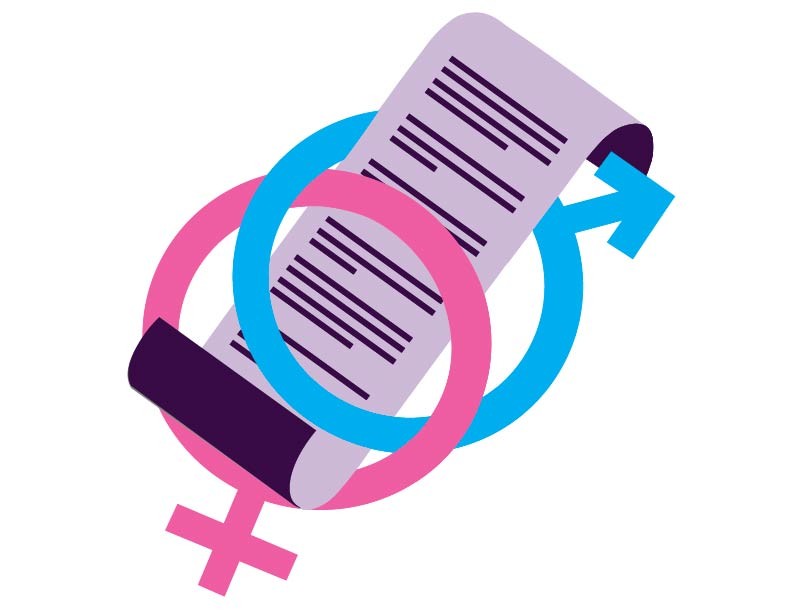The proposed policy on gender identity passed in the University of Minnesota Senate Thursday.
The vast majority of senators supported the motion with a voice vote, with a handful voting against. The policy, Equity and Access: Gender Identity, Gender Expressions, Names and Pronouns, has worked its way through University governance for over a year. The policy states that University members can use preferred names or pronouns without requiring documentation, and sets forth expectations for other University members to use those identifiers, except as legally required.
Tina Marisam, director of Equal Opportunity and Affirmative Action at the University, said she anticipates the policy will be presented to the Policy Advisory Committee in August and the President’s Policy Committee in September.
Each committee will have the opportunity to provide feedback and make changes to the policy.
“[In the past] they’ve had really good feedback, so I imagine there could be changes that are intended to clarify provisions of the policy or add more detail,” Marisam said. “We’re always looking for that kind of feedback. If we can make it a stronger, clearer policy, then we’ll try to do that.”
If the policy passes each of these committees, it will begin a 30-day public comment period.
Marisam said comments could include suggestions for changes, clarification, requests for more detail or questions about how to apply the policy. After the comment period, it would be reviewed by the president’s chief of staff, who could then implement the policy.
Student Senator Austin Berger said passing this policy was a “historic” step, but supporters need to look ahead.
Administrative policies do not typically require approval from the Board of Regents. Board policy allows them to step in “when unusual circumstances suggest the advisability of Board ratification.” An official in the University Policy Program said this practice is “so unusual,” but speculated it could happen in this instance due to the policy’s visibility.
“If the regents have concerns about this policy and if any of them would like to nullify it, I think we will have to organize some direct action efforts to ensure this is respected,” Berger said. “It’s a pretty loud message when civil service [professional and administrative staff], faculty and students all come together and endorse something like this by an overwhelming majority.”
Flyers at the meeting from activist group Women for Political Change implored University senators to send emails to regents soliciting support for the policy.
Student Senator Ian Smith, who wrote an op-ed about the policy for the Star Tribune last summer, was one of the few who voted against the policy.
“We can all agree that there are things that we shouldn’t be able to say here at the University. We don’t want students harassed,” Smith said. “But there is a nuanced distinction between things we can’t say to students and forcing a student to say something.”
The policy reads, “University members and units are expected to use the names, gender identities, and pronouns specified to them by other University members, except as legally required.”
Smith said he supports the intent of the policy, but takes issue with the word “expected.”
“The University is not in the business of expecting students to say anything,” he said. “It’s not about gender-nonconforming students or trans students, it’s about refusing to let the University compel a student to say something.”
While an early draft of the policy included a section outlining potential punishment if someone harassed another in relation to gender identity or expression, this language was removed from the policy in January. Such harassment is addressed by an existing Board of Regents policy.
Student Senator Kelly Wallin said the policy should include specific language about punishment.
“I’ve never experienced a situation where someone misgendered another person and it wasn’t clear if it was or was not a mistake,” Wallin said. “I’m glad that it finally passed, I wish it was more aggressive.”







